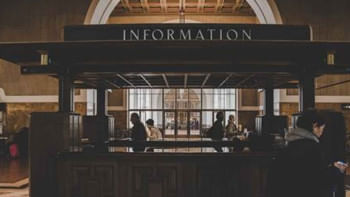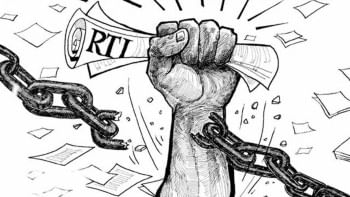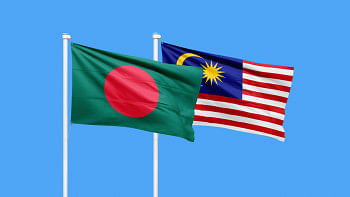The State of RTI in South Asia: The Pakistan Case

Over the last two decades, most of South Asia has adopted right to information (RTI) laws, also known as freedom of information (FOI) or access to information (A2I) laws. With a shared colonial past and a deeply-entrenched culture of official secrecy and unbridled exercise of government power over people, the countries in this region provide a unique opportunity to observe how a law that seeks to establish transparency and accountability in governance has fared in these common contexts. Having previously looked at the status of the RTI regimes in Bangladesh, India and Sri Lanka, we turn today to Pakistan.
Pakistan is, in fact, the first country in South Asia to have adopted an RTI law – albeit as an ordinance by a military ruler, in 2002. However, it soon became evident that the government's motivation in this regard was influenced more by donor pressure than serving public interest. The new law had no teeth to promote transparency in government work and establish its accountability to the Pakistani people. It lacked basic ingredients for efficacy and remained largely unused.
The need and demand for a more robust transparency regime in Pakistan grew in tandem with the progressive development of RTI regimes across South Asia. Several provinces of Pakistan, including Khyber Pakhtunkhwa, Punjab and Sindh, took the lead in adopting similar laws at the subnational level. The momentum thus created eventually led to the Pakistani parliament adopting the Right of Access to Information Act 2017 for the whole country.
Since then, the law appears to be picking up steam. Two recent orders by the Pakistan Information Commission (PIC) exemplify the growing use of the law by citizens to check on government activities, and underline the importance of an independent information commission to resolve disputes – objectively and impartially – between the citizens and public authorities.
The first case relates to a request for information on the selection process and circulation figures of newspapers and similar other entities carrying government advertisements. Syed Ishteyaq Bukhari had applied to the Audit Bureau of Circulation (ABC) of Pakistan to obtain a certified list of all Pakistani newspapers, magazines and the like, which received certification from the ABC, together with their addresses, circulation figures and the rate of commission they enjoyed for publishing government advertisements. The ABC denied the request, claiming that "circulation figures and rate of commission paid, being business secrets of the respective organisations/entities, should not be shared." It based its claim on the exemption provisions of the access to information law. It also argued that the disclosure would jeopardise their auditing procedure. Bukhari then took it up with the PIC.
The commission sided with Bukhari, holding that "the disclosure of circulation figures and rate of commission paid is intrinsically linked with … citizens' right of access to information in matters of public importance (and) ... will reveal how effectively public funds are utilised to disseminate information through advertisements."
It further added that "instead of jeopardising (the) auditing procedure … the disclosure of the requested information about the way such an audit is conducted to fix rates of commission for the placement of advertisements in different newspapers will not only strengthen such auditing procedure, but will also help protect legitimate commercial interests of all entities vying for the placements in their newspapers."
The PIC directed the ABC to provide the requested information, reminding it that "greater level of disclosure of information pertaining to (the) utilisation of public funds is the best antidote for the wide-spread malady of rumour-mongering, calling into question (the) integrity of public officials."

The second case is related to a request for information on the number of private security guards deployed by the Pakistan Post Office department (PPOD) and the salaries/wages they received. Applicant Naim Siddiqui made the request on behalf of a group of citizens working for better wages and working conditions of private security guards throughout Pakistan. Their ostensive purpose was to reveal glaring human rights violations of employees by the authority.
Denying disclosure, the PPOD argued that "the private security guards deployed are neither regular employees of PPOD, nor are they on (the) payroll of Pakistan Post. The(y) … are hired by Pakistan Post from private security companies on contract basis … (and it) does not make direct payment of wages/salaries to these private security guards." They, thereby, sought to absolve themselves of all responsibility in this regard.
The PIC rejected PPOD's position and ordered disclosure of the requested information. It further added that information on steps taken by the PPOD to protect legal rights of the contracted guards to minimum wages and access to allied facilities is of public importance and hence must be made available.
In delivering the order, the commission emphasised that the "disclosure of the requested information will shed light on how public funds are being spent through the contractor and the extent to which the respondent has ensured that these public funds are spent in line with the laws of the land." It reinforced its viewpoint by citing a positive judgment of the Sindh High Court dealing with the question whether employees of a labour contractor can be considered as the employees of the establishment, thereby enhancing its value as a legal precedent.
As always, lessons from our neighbours can illuminate the work of information commissions across South Asia. Each of the countries in this region can exchange these experiences and contribute to the progress of jurisprudence in this important area of public interest.
Dr Shamsul Bari and Ruhi Naz are chairman and assistant director (RTI), respectively, at Research Initiatives, Bangladesh (RIB).

 For all latest news, follow The Daily Star's Google News channel.
For all latest news, follow The Daily Star's Google News channel. 











Comments